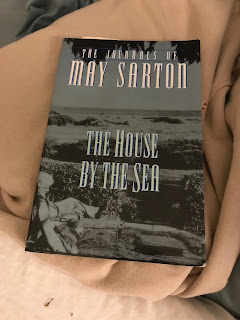"Until we have found our own ground and connection to the Whole, we are unsettled, grouchy, and on the edge of falling apart...afterward, you know you rightly belong in this world, and that you are being held by some Larger Force. For some seemingly illogical reason life then feels okay and even good and right and purposeful." Richard Rohr
Nontraditional Nonfiction: This week we will be focusing on the nontraditional side of reading nonfiction. Nonfiction comes in many forms. There are the traditional hardcover or paperback print books, of course, but then you also have e-books, audiobooks, illustrated and graphic nonfiction, oversized folios, miniatures, internet publishing, and enhanced books complete with artifacts. So many choices! Do you find yourself drawn to or away from nontraditional nonfiction? Do you enjoy some nontraditional formats, but not others? Perhaps you have recommendations for readers who want to dive into nontraditional formats. We want to hear all about it this week!
I thought this week's prompt was going to be one I couldn't do, as I almost always read print books, but after reading some of the other blogger's entries, I decided to broaden my thinking a bit about what I consider "reading."
I have discovered that nonfiction is often easier for me on Kindle than in print. I think partly this is because on Kindle, I don't become discouraged by the sheer volume of so many nonfiction books. Spillover by David Quamman, for example, is a book I have been struggling to finish for over two years. I would make a little headway, then set it aside and not pick it up for months, until September when I decided to try it on my Kindle while I was in South Africa. Once I migrated to Kindle, I finished the last half of the book in a little over a month. It had taken me two years to read the first half. I also find that I seem to be able to focus better on my Kindle than I do on print books. I know this is counter to the experience I'm supposed to have. I've read the studies. I don't know how to explain it. Maybe my brain processes backwards. That would explain a lot, actually. I think my next Kindle project is going to be Annals of the Former World by John McPhee. I've been watching Making North America on PBS, and I read somewhere that this was a recommended read by the series host, Kirk Johnson. I'm a sucker for a science book. I also like Kindle for my daily self-help type reading. Right now on Kindle, I'm reading Richard Rohr's Breathing Underwater, The Upanishads, and re-reading Pilgrim at Tinker Creek by Annie Dillard.
Audiobooks seem to be a very popular nontraditional format for a lot of people. My only real success with audiobooks has been comedy, David Sedaris in particular. His voice is absolutely perfect for his stories. I don't have a lot of time to listen to audio, and I find my mind often wanders when I try. With the coming of winter, I hope to be walking at the indoor track more. If anyone has any recommendations for audio books to listen to while I walk, please share them. Just remember the options need to be light and fairly easy to follow, or I'll zone out. Walking into a wall is not beyond the realm of possibility for me if I get too intent on what I'm hearing.
Although it's been several years since I read one, I have thoroughly enjoyed the graphic novels I have read. Three that stand out in particular are Maus I and II by Art Spiegelman and American Born Chinese by Gene Luen Yang. I've had Persepolis by Marjane Satrapi on my shelf for years. May be a good time to get to that one.
Another different way I read is via email. I subscribe to Richard Rohr's daily email, and most days I read it before I even get out of bed. It's a good length for a quick but thought-provoking read. In the last several months, he has published series on Buddhism; Jung; Nonviolence; Myth, Art and Poetry, and on AA's 12 Step program. Check him out. I love his work.
My last nontraditional format may be a bit of a stretch, but if audio books count, Podcasts should count too. At one point I was trying to listen to TED talks, The Moth, Literary Disco, and several others, but I was getting overwhelmed and not really listening to any of them, so I've narrowed my Podcasts down to On Being with Krista Tippett. I have never been disappointed with these weekly, thought-provoking conversations. This week's interview with Lisa Randall (here) is especially appropriate for a Nonfiction November post. Now I want to read all of her books. Sigh. So many books, so little time. I need to retire.























